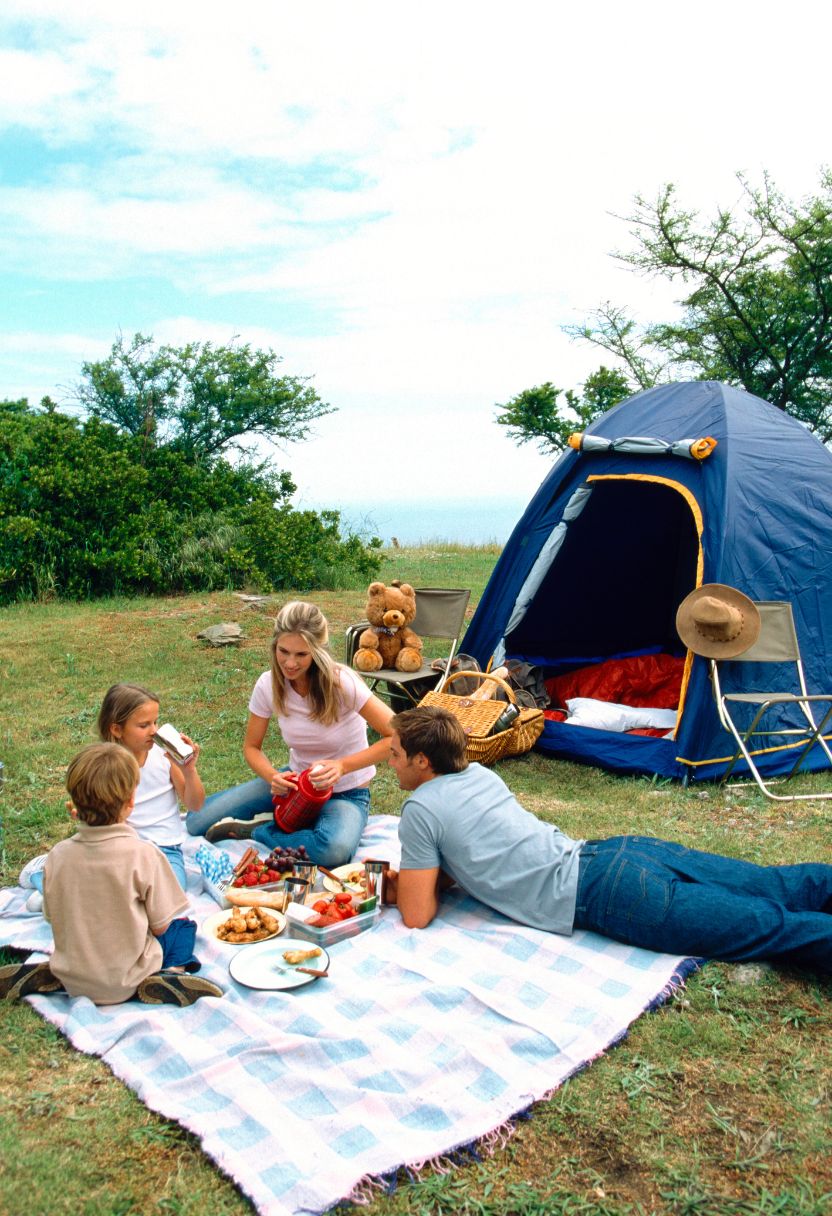

When you're planning a family vacation, meal planning might not be at the top of your list. After all, vacations are supposed to be about relaxation and spontaneity, right? Get the scoop visit that. But hey, don't dismiss it just yet! Meal planning on a budget can actually bring some real benefits that might make your trip even more enjoyable-and easier on your wallet.
First off, let's talk money. Eating out every single meal gets expensive-fast! You'd be surprised how quickly those restaurant bills add up. When you plan meals ahead of time, you can buy groceries in bulk and prepare most of your food yourself. Receive the scoop check now. Sure, it takes a bit of effort but think about how much you'll save. Plus, you'll know exactly what you're spending on food instead of being shocked by the credit card bill later.
Another biggie is health. Vacations often become an excuse to indulge in all sorts of unhealthy foods. And while there's nothing wrong with treating yourself now and then (who doesn't love ice cream?), consistently eating out usually means less control over what goes into your meals. By planning ahead and preparing some meals yourself, you get to decide what's healthy for your family. Maybe throw in a salad here or some fresh fruit there-you'll feel better for it!
Time management's also something people don't really consider when they skip meal planning during vacations. Searching for restaurants takes up valuable time that could be spent exploring or relaxing. Imagine the convenience of simply grabbing breakfast from your own kitchen before heading out for the day. No waiting in lines or dealing with crowded places-just pure vacation bliss.
And let's not forget picky eaters! If you've got kids who turn their noses up at anything unfamiliar, dining out can become quite stressful. With planned meals from home, you have total control over the menu and can ensure everyone has something they like without any drama.
However-and this is important-meal planning doesn't mean you're stuck cooking all week long or that you can't enjoy local cuisine at all. It's about balance! Plan breakfasts or simple lunches and then treat yourselves to dinners out at special spots you've researched beforehand; that way you're still getting authentic experiences without breaking the bank entirely.
So there it is: meal planning during family vacations isn't as boring as it sounds-it actually makes things smoother and more cost-effective while keeping everyone happy and healthy (mostly). Give it a shot next time you're packing up for an adventure; who knows? You might find it's one travel habit worth sticking with!
Planning meals while traveling can be quite a challenge, especially when you're on a tight budget. But don't worry, researching affordable grocery options at your travel destination can make all the difference. It ain't easy, but with a bit of effort and some smart choices, you can enjoy delicious meals without breaking the bank.
First off, let's talk about local markets. These places are fantastic for finding fresh produce and other essentials at lower prices. They're often cheaper than big supermarkets and have that authentic vibe that makes shopping kinda fun! Plus, you'll get to experience the local culture up close. However, don't expect everything to be dirt cheap; sometimes those quaint little stalls might surprise you with their prices.
added information readily available visit it.
Another great tip is to look for discount grocery stores or chains that offer deals and promotions. You'd be surprised how many hidden gems there are if you just do a bit of digging online before your trip. Websites like Yelp or Google Reviews can help you identify these spots easily. And hey, it's not like we're searching for gold here – just some good food at reasonable prices!
Don't forget about bulk stores either! Buying in bulk can save you quite a lot if you're staying somewhere with cooking facilities. Things like rice, pasta, and canned goods usually come cheaper in larger quantities. It's definitely worth considering if you're planning on preparing most of your meals yourself.
Now here's an idea that's often overlooked: connect with locals through social media groups or forums focused on your destination. Folks who live there will know where to find the best deals and might even share some insider tips on saving money while shopping for groceries.
Of course we can't neglect mentioning loyalty programs offered by grocery stores. Signing up for these programs can give you access to exclusive discounts and promotions that tourists might otherwise miss out on. It's an extra step but hey – every penny counts!
Lastly though it may seem trivial remember not to shop when hungry! You'll end up buying stuff you don't really need which could blow your budget pretty fast.
In conclusion yeah meal planning on a budget requires some research especially when traveling but its totally doable! By exploring local markets seeking out discount stores connecting with locals taking advantage of bulk buying using loyalty programs and avoiding shopping on an empty stomach you'll find affordable grocery options wherever your travels take ya.
So next time you're gearing up for a trip spend just a little time upfront researching those affordable groceries - trust me it'll make your wallet happy!
France is regularly the most seen country worldwide, drawing in over 89 million tourists in 2019, attracted by landmarks like the Eiffel Tower and the Riviera.
The Great Wall Surface of China, stretching over 13,000 miles, was initially developed to safeguard Chinese states from intrusions and is currently among one of the most popular visitor destinations around the world. France is constantly the most gone to country in the world, drawing in over 89 million vacationers in 2019, attracted by landmarks like the Eiffel Tower and the Riviera.
The world's busiest airport terminal by passenger web traffic, Hartsfield-Jackson Atlanta International Flight terminal, saw greater than 110 million guests in 2019, functioning as a major hub for travel in the United States.
India's colorful Holi Festival attracts hundreds of site visitors annually that join in the festivities to toss tinted powder and commemorate the arrival of springtime.
When it comes to figuring out the best age to start traveling with kids, there's no one-size-fits-all answer.. Experts and parents alike have a lot of opinions on this matter, and they don't always agree. Many experts suggest that waiting until your child is at least three years old might be a good idea.

Posted by on 2024-07-13
Planning a family vacation can be both exhilarating and stressful, especially when you're trying to keep costs down.. But don’t worry, there are budget-friendly travel tips for each season that won’t leave your wallet feeling empty.

Posted by on 2024-07-13
When it comes to family travel, the secret to keeping things stress-free isn't just in picking the right destination or packing efficiently.. It's really all about budgeting wisely to avoid financial stress.

Posted by on 2024-07-13
Planning the ultimate family vacation without breaking the bank might seem like a daunting task, but it's totally doable if you create a detailed itinerary.. Oh, and trust me, it’s not as boring as it sounds!

Posted by on 2024-07-13
Creating a Flexible but Cost-Effective Meal Plan
Meal planning on a budget can seem like an overwhelming task, but it's not as hard as you might think! The key is to strike the right balance between flexibility and cost-effectiveness. Let's dive into some practical tips that will help you create a meal plan without breaking the bank.
First off, don't be afraid to buy in bulk. Bulk purchases often save money in the long run, even if they seem pricier upfront. Rice, pasta, beans-these staples are usually cheaper when bought in larger quantities. Plus, they're versatile ingredients that can be used in countless meals. Oh, and don't forget about frozen veggies-they're just as nutritious as fresh ones and last way longer.
Now, here's something important: make good use of leftovers! Don't toss those extra servings; instead, turn 'em into new dishes. Leftover chicken from dinner? It's perfect for tomorrow's lunch salad or sandwich. By repurposing leftovers, you're not only saving money but also reducing food waste.
While we're at it, let's talk about meal prepping. I know it sounds like a weekend-eating chore, but trust me-it's worth it! Spend some time chopping veggies or cooking grains ahead of time so during the week you won't feel rushed or tempted to order takeout. It's all about making your life easier while sticking to your budget.
Another tip is to embrace simple recipes with minimal ingredients. Sure, fancy recipes are fun occasionally-but they often require ingredients you wouldn't normally buy and may never use again. Stick to basics that you're familiar with and build from there.
Don't shy away from generic brands either! They're usually just as good as name brands but come at a fraction of the price. Seriously-you'd be surprised how much you can save by opting for store-brand products over their more expensive counterparts.
And hey-it's okay if your meal plan isn't perfect every week! Life happens; plans change; sometimes we just crave pizza instead of our planned roast veggies (it happens!). Allow yourself some grace and flexibility within your meal plan so it doesn't feel too restrictive.
Lastly-and this one's crucial-write down what you've already got at home before shopping for more groceries! We tend to forget what's lurking in our pantry shelves or freezer drawers which leads us buying stuff unnecessarily.
In conclusion...meal planning on a budget doesn't have'to mean sacrificing flavour or variety-it simply requires smart choices and mindfulness towards spending habits (and maybe being creative with leftovers). Follow these tips above-and soon enough-you'll find yourself enjoying delicious meals without stressing over costs!
So go ahead give these strategies try because eating well should'nt cost fortune nor should creating flexible yet affordable eating routine prove impossible challenge!


Packing non-perishable snacks and ingredients for meal planning on a budget ain't exactly rocket science, but it's something that can save you both time and money. People often think it's a daunting task, but really, it ain't that bad. In fact, with a little bit of foresight and some smart choices, you'll find yourself breezing through your week without having to worry much about what you're gonna eat next.
First off, let's talk about the beauty of non-perishable items. They don't go bad quickly like fresh produce or dairy products do. That means you can buy 'em in bulk when they're on sale and stash them away until you need 'em. Canned beans, pasta, rice – these are staples that should be in anyone's pantry if they're serious about eating on a budget. Oh! And don't forget things like nuts and seeds; they might seem pricey at first glance but trust me, a little goes a long way.
Now I know what you're thinking: "Non-perishable? Sounds boring!" But hold your horses! Just because something isn't fresh doesn't mean it can't be tasty or nutritious. Stock up on spices and dried herbs – they're cheap as chips and can transform the most basic ingredients into something you'd actually want to eat.
One thing folks usually overlook is packaging their own snacks instead of buying pre-packaged ones. Seriously, those individually wrapped snack packs add up real quick in terms of cost! Instead, invest in some reusable containers or even plastic bags (if that's all you got) and make your own trail mix with mixed nuts, dried fruit, maybe even some dark chocolate bits if you're feeling fancy.
And speaking of saving money – let's not forget coupons and sales! Keep an eye out for discounts on non-perishables because these babies have long shelf lives so stocking up when prices drop is a no-brainer. Also consider store brands over name brands; more often than not there's barely any difference except for the price tag.
It's also worth mentioning that planning ahead is key here. Make a list before going shopping so you don't end up buying stuff just coz it's on sale only to realize later that you've got no use for it whatsoever.
So there ya go! Packing non-perishable snacks and ingredients doesn't have to be this big scary thing. With just a little bit of planning ahead-and maybe resisting those tempting pre-packaged goodies-you'll not only save money but also ensure you've always got something decent to munch on hand when hunger strikes unexpectedly.
When it comes to meal planning on a budget, utilizing local markets and street food can be an absolute game-changer. Trust me, it's not only economical but also incredibly delicious! You might think that eating out is expensive, but street food often tells a different story. It's affordable and offers a variety that's hard to beat.
First off, let's talk about local markets. They are treasure troves of fresh produce and other essentials at prices way lower than what you'd find in big supermarkets. I mean, who doesn't love bagging a bargain? The key here is to go early when the selection is best and vendors are more willing to negotiate. Seasonal fruits and veggies are usually much cheaper because they're abundant-so don't shy away from asking what's in season.
Now, onto street food. Oh boy, where do I even start? Street food isn't just quick and convenient; it's also a window into the local culture. Whether you're grabbing a taco from a stand in Mexico or savoring some pho from a cart in Vietnam, you're getting authentic flavors without breaking the bank. It's not like you have to eat out every day either; incorporating street food into your meal plan just once or twice a week can save you quite a bit.
However, there're some things you should keep in mind if you're planning on going this route for budget-friendly meals. Hygiene matters! Not all street vendors follow strict cleanliness protocols, so look for stalls with long lines-they're usually safer bets since high turnover means fresher ingredients.
Another tip: don't ignore leftovers! Many people think that street food can't be reheated or repurposed for another meal but that's simply not true. A little creativity goes a long way here-a leftover kebab can easily become part of tomorrow's salad or sandwich.
It's worth mentioning that mixing things up between cooking at home using market buys and indulging in some mouth-watering street eats keeps things interesting too. You're less likely to get bored with your meals which makes sticking to your budget much easier.
So yeah, utilizing local markets and enjoying some tasty street food can really stretch those dollars while keeping you well-fed and satisfied. It's not rocket science; it's just smart planning mixed with a dash of adventurous eating! And who knows? You might discover some new favorite foods along the way.
In conclusion-oh wait-I promised no repetition! So let's wrap it up by saying: Give local markets and street fare a shot next time you're looking to cut down on meal expenses without sacrificing flavor or variety. You'll be pleasantly surprised by how far your money can go when you think outside the supermarket aisle!


Preparing Simple, Nutritious, and Budget-Conscious Meals in Rental Kitchens or Hotel Rooms
When traveling or staying away from home, one of the biggest challenges can be maintaining a healthy diet without breaking the bank. It's not impossible to prepare simple yet nutritious meals in rental kitchens or hotel rooms; it's actually quite achievable with a bit of planning and creativity. You don't have to settle for expensive takeout or unhealthy fast food options all the time.
First off, let's talk about rental kitchens. They're usually equipped with basic utensils and appliances like a stove, microwave, and maybe even an oven. It's surprising how much you can do with just these basics! A great starting point is to focus on versatile ingredients that can be used in multiple dishes. For instance, rice, pasta, beans, and canned tomatoes are budget-friendly staples that store well and can form the base of many meals.
Don't forget your proteins either-canned tuna or chicken are lifesavers when it comes to quick and easy meal prep. Fresh vegetables might sound tricky if you're worried about them spoiling quickly but focusing on hardy veggies like carrots, bell peppers, and broccoli will keep your meals healthy without the rush to use them up immediately.
Hotels rooms often present more limitations than rental kitchens since they might only offer a mini-fridge or microwave at best. But hey-you can still whip up something decent! Microwaveable grains like quinoa cups or brown rice packets work wonders here. Pair these with pre-cooked rotisserie chicken slices (you know those bags you find at grocery stores?) and some steamed frozen veggies for a balanced meal.
One thing people often overlook is the power of seasoning. Just 'cause you're cooking on-the-go doesn't mean your food has gotta be bland! Basic spices such as salt pepper garlic powder chili flakes etc., go a long way in enhancing flavors without much effort.
It's also wise to plan ahead before hitting the road by preparing a shopping list based on what kind of cooking facilities you'll have access to. This prevents impulse buying which tends towards pricey items that may not even get fully used during your stay.
A little trick I've found useful over time is investing in collapsible kitchen gadgets-they save space but don't skimp on functionality!
So there you have it-preparing simple nutritious budget-conscious meals while traveling isn't rocket science nor does it require fancy equipment or exotic ingredients! With some foresight smart shopping habits plus willingness adapt any situation possible maintain healthy eating habits wherever go!
Traveling can be quite an adventure, but it often comes with its own set of challenges, especially when you're trying to stick to a budget and minimize food waste. It's not impossible though! With a bit of planning and some useful tips, you can enjoy your travels without breaking the bank or wasting too much food.
First off, don't make the mistake of overpacking snacks. Sure, it's tempting to bring every snack under the sun "just in case," but you'll end up with crushed granola bars at the bottom of your bag more often than not. Instead, pack only what you'll genuinely eat. Focus on versatile items like nuts or dried fruits that won't easily spoil and can double as both breakfast or a quick snack.
When it comes to meals, it's smart to plan ahead but not too rigidly. You never know when you'll stumble upon a local market with fresh produce that's just too good to pass up. Leave some flexibility in your meal plans for these unexpected finds-it'll save money and reduce waste since you're using what's readily available.
Eating out doesn't have to be expensive nor lead to wasted food either. Sharing meals is a great way to try different dishes without ordering more than you can finish. Don't be afraid to ask for half portions if they're available; many restaurants are happy to accommodate this request.
One big tip: avoid buying perishable foods in bulk unless you're sure they'll get eaten quickly. It might seem cheaper initially, but if you can't consume everything before it spoils, you've just thrown money away-literally! Also, steer clear from impulse buys at grocery stores; those usually end up being the first things that go bad because they weren't part of your original plan anyway.
Bringing reusable containers is another handy trick. They're perfect for storing leftovers from restaurant meals or even fresh produce bought from local markets. This way, nothing goes uneaten simply because there's no place to keep it.
Oh! And let's talk about water bottles and coffee cups-bring 'em along! Not only will you cut down on single-use plastics (bonus points for being eco-friendly), but many cafes offer discounts if you use your own cup.
Lastly, don't underestimate the power of asking locals for advice. They know where the best deals are and which places offer decent portions at reasonable prices-plus they might share some hidden gems you'd never find otherwise!
In conclusion (not that we're really concluding anything definitive here), minimizing food waste while traveling doesn't need herculean effort-it just takes a little mindfulness and preparation. So next time you're packing your bags think twice about what goes into them; remember these tips-and happy travels!
